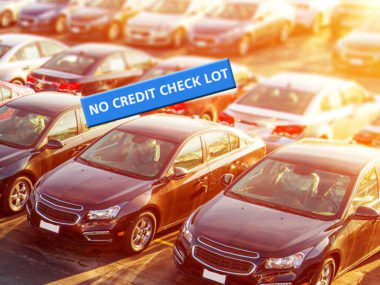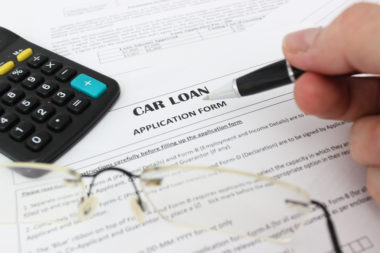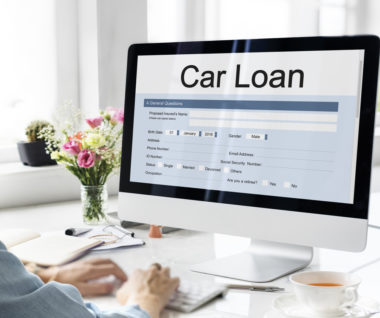Although your city might have great public transportation, for most of the country having a car is an essential part of modern living. However, most people don’t have thousands of dollars sitting around, waiting to be spent. Instead, you might have to get a loan to finance a car purchase.
Car loans can be confusing, especially if you don’t understand term rates and the different financing options. A car loan is also a big financial commitment, and a missed payment could mean serious consequences for your credit score. Before signing up for a loan, you should understand exactly what you’re getting into.
Table of Contents
What Is a Car Loan?
A car loan is an installment loan from a lender like a credit union or bank that you take out in order to purchase a car from a dealership or private seller. Typically, customers won’t have the cash on hand to buy a car. Instead, they get an auto loan which consists of borrowing money from a lender to buy a car. The car acts as security or collateral, meaning if you defer on payments, the car can be taken away.
Generally, you reach a loan agreement based on the downpayment and your creditworthiness. Often, you may negotiate the terms of the loan to fit your personal budget. You can reach this agreement with your bank beforehand, or a dealership can act as an intermediary for you.
Key Terms to Know
When signing up for a car loan, there are common terms to be aware of:
- Annual percentage rate (APR): This is the amount you will pay to borrow the money, including interest and fees.
- Down payment: This is an upfront payment that you make toward the cost of the car. Typically it can help lower the cost of the monthly payments.
- Loan term: This is the length of the loan.
- Monthly payment: This is how much you will pay each month to pay off the loan.
- Principal: This is the amount you are borrowing without the fees, interest, and other costs taken into account.
- Total cost: This is the total loan amount, also called the overall principle and interest.
What Do You Need to Take Out a Car Loan?
Car dealerships and banks want to ensure that you can pay for your car and are trustworthy. That is why they ask for detailed financial information at the beginning of the loan application. To apply for a car loan, you must make sure you have the following requirements ready to submit:
- Proof of income;
- Proof of insurance;
- Proof of identity, most commonly your driver’s license;
- Some money for a down payment;
- A good credit score.
The approval process for a loan typically takes one to two hours. A bank, credit union, or other online financial dealers will weigh the pros and cons of lending to you. It’s important to shop around for rates, as some banks will have higher interest rates than others. Additionally, it’s important to look at the dealership’s financial options. Dealers generally have good relationships with lenders, so you could compare rates easily.
Is Your Credit Score High Enough for a Car Loan?
Ultimately, whether your credit score is high enough depends on the size of the loan you’re trying to get. You’ll likely be approved for a loan but if you have excessively bad credit your interest rate will just be much higher.
While someone with a great credit score can get an APR around 5%, someone with bad credit will get an APR closer to 20%. Many people wonder what a good APR is, but the truth is that the lower you can get it, the better. The higher your credit score is, the more likely you’ll get a lower APR. You can buy a car with bad or no credit, but be prepared to compromise in other areas.
How Much Money Should You Put Down on a Car?
Your financing options will depend on the car you’re getting and how much you can afford. You should approach a car loan for a new car differently than a used one. If you can afford to, always put as much down as possible. Down payments help reduce the overall cost of the loan. If you can pay for the whole thing outright, this will save you a lot of money in the long term — however, it is highly unlikely for a customer to pay outright for a car.
Twenty percent of the car’s price is often touted as an industry standard for a down payment. You can get away with 10%, though, especially if the car is used. Used vehicles depreciate at a slower rate, so increasing the length or the amount of the loan won’t hurt you as badly. You should put as much as you can afford towards your down payment, but 10% should be your absolute minimum.
Should You Get Preapproved for a Car Loan?
If you’re wondering whether you should get preapproved for a car loan, the answer is yes. Getting pre-approved means going to the bank before you go to the dealerships and working out the terms of your loan there. This gives you an advantage in a couple of ways:
- You already know that you’ve worked out the best loan you could possibly get.
- It gives you time to consider exactly how to fit this loan into your budget.
- You’re in a stronger negotiating position, since you’ve already worked out exactly how much you’re prepared to spend. Any salesman will have a hard time swindling you when you’ve already worked out the numbers ahead of time.
A car is one of the biggest purchases that most people make in a lifetime. Although you’ll probably go through multiple cars, each car loan that you take out will be a different experience.
It’s a delicate act to balance your monthly bill with your down payment. Be honest with yourself about your budget, and don’t reach too far. There’s a reason why not everyone drives a Lamborghini. Failing to make your monthly loan payments can end up wrecking your credit score and cause your car to get repossessed.
Image Source: https://depositphotos.com/





